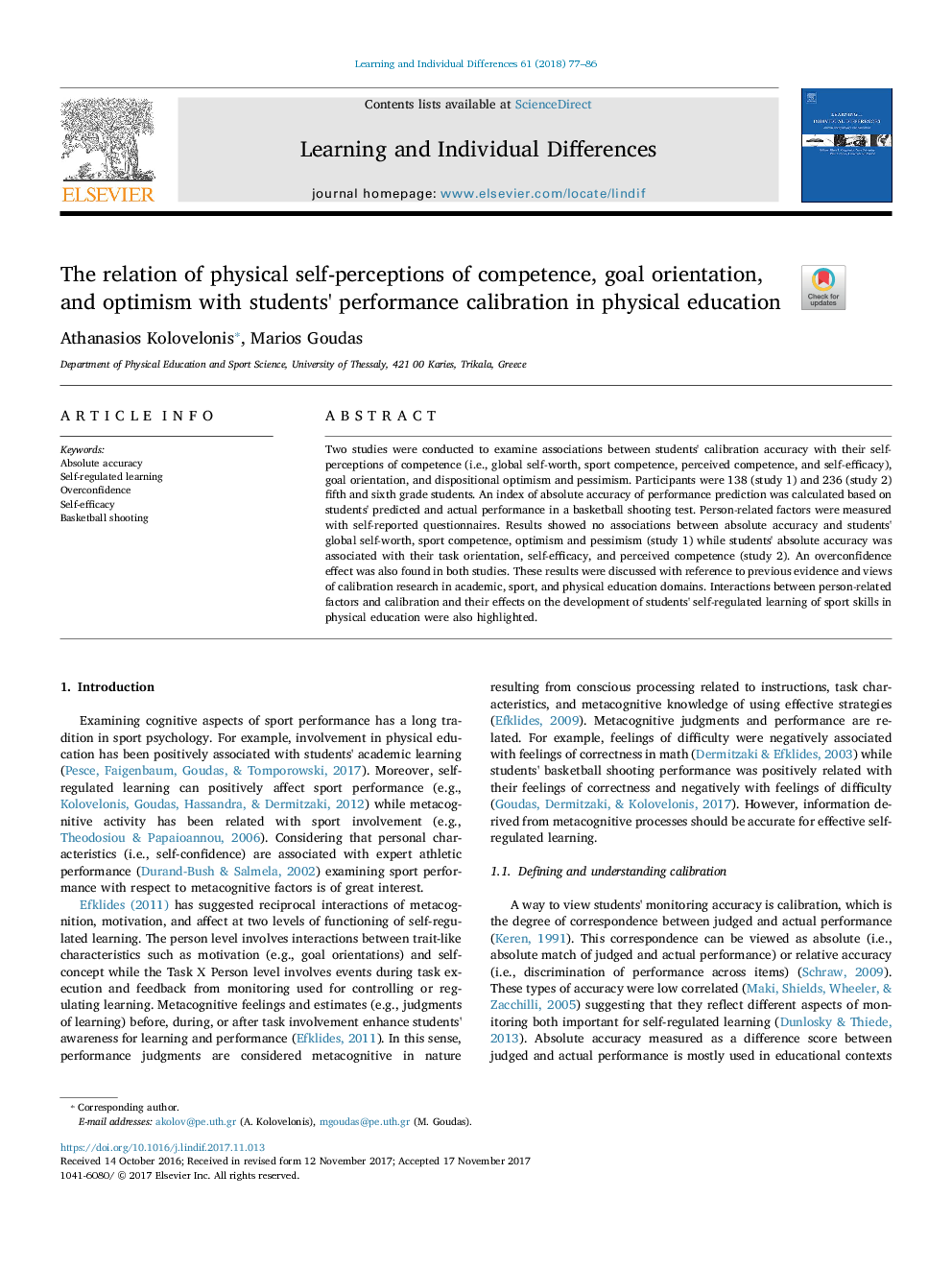ترجمه فارسی عنوان مقاله
ارتباط عزت نفس فیزیکی مهارت، جهت گیری هدف و خوش بینی با کالیبراسیون عملکرد دانش آموزان در تربیت بدنی
عنوان انگلیسی
The relation of physical self-perceptions of competence, goal orientation, and optimism with students' performance calibration in physical education
| کد مقاله | سال انتشار | تعداد صفحات مقاله انگلیسی |
|---|---|---|
| 122588 | 2018 | 10 صفحه PDF |
منبع

Publisher : Elsevier - Science Direct (الزویر - ساینس دایرکت)
Journal : Learning and Individual Differences, Volume 61, January 2018, Pages 77-86
ترجمه کلمات کلیدی
دقت مطلق، یادگیری خودمراقبتی، بیش از حد اعتماد، خود کارآمدی، تیراندازی بسکتبال،
کلمات کلیدی انگلیسی
Absolute accuracy; Self-regulated learning; Overconfidence; Self-efficacy; Basketball shooting;
ترجمه چکیده
دو مطالعه برای بررسی ارتباط بین دقت کالیبراسیون دانش آموزان با خودپنداره از شایستگی (به عنوان مثال، ارزش ذهنی جهانی، شایستگی ورزش، شایستگی درک شده و خود کارآمد بودن)، جهت گیری هدف، خوش بین بودن و بدبینی است. شرکت کنندگان 138 (مطالعه 1) و 236 (مطالعه 2) دانش آموزان پنجم و ششم بود. شاخص دقت مطلق پیش بینی عملکرد بر اساس عملکرد پیش بینی شده و واقعی دانش آموزان در آزمون تیراندازی بسکتبال محاسبه شد. عوامل مرتبط با فرد با استفاده از پرسشنامه های خود گزارش شده است. نتایج نشان داد که بین دقت مطلق و ارزش ذهنی جهانی دانشجویان، شایستگی ورزشی، خوش بینی و بدبینی (مطالعه 1) هیچ ارتباطی وجود نداشت، در حالی که دقت مطلق دانشجویان با جهت گیری کار، خود کارآمدی و شایستگی درک شده ارتباط داشت (مطالعه 2). اثر بیش از حد اعتماد در هر دو مطالعه نیز یافت شد. این نتایج با اشاره به شواهد و دیدگاه های پیشین تحقیقات کالیبراسیون در حوزه های علمی، ورزشی و تربیت بدنی مورد بحث قرار گرفت. تعاملات بین عوامل مرتبط با فرد و کالیبراسیون و تأثیر آنها بر توسعه یادگیری خودمختار دانش آموزان از مهارت های ورزشی در تربیت بدنی نیز برجسته شده است.

